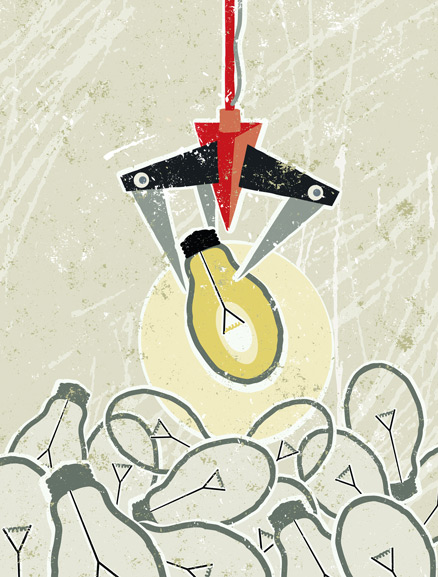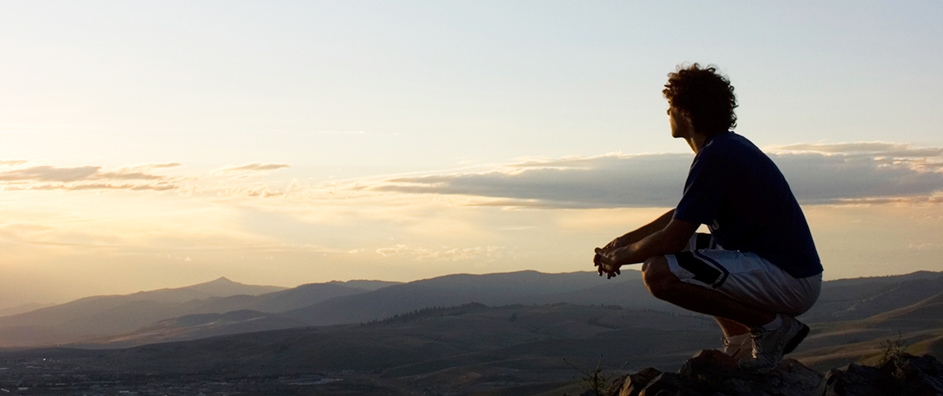The views expressed in our content reflect individual perspectives and do not represent the authoritative views of the Baha'i Faith.
In Part I of this short series of essays, we explored the source of the question many of us ask ourselves at some point in our lives: “Why me?”
But if you’re like me, you often ask yourself “Why did I do that? How could I have been so stupid?!” All these deeply reflective questions have become part and parcel of the human condition, the essence of the written word, described in stories and books from time immemorial.
 Many of us have answered these questions instinctively based on our own worldview, no matter how we came to believe what we believe or don’t believe. We question neither our motives nor their premises. Most people may think naturally “This is who I am, and I am who I am,” and remain perfectly satisfied and comfortable with their current existence. Others struggle with these questions, and some spend their whole lives searching out their meaning. As an example, I think of devout Buddhist monks dedicated to finding “The One,” the Tao, within themselves, within others, and within nature.
Many of us have answered these questions instinctively based on our own worldview, no matter how we came to believe what we believe or don’t believe. We question neither our motives nor their premises. Most people may think naturally “This is who I am, and I am who I am,” and remain perfectly satisfied and comfortable with their current existence. Others struggle with these questions, and some spend their whole lives searching out their meaning. As an example, I think of devout Buddhist monks dedicated to finding “The One,” the Tao, within themselves, within others, and within nature.
This quest, the unquenchable human thirst for meaning, is built into our psyche, as evidenced by the powers of our rational minds to ask such things of ourselves. Humans have always relied on the great religious educators—Christ, Buddha, Krishna, Abraham, Moses, Muhammad and now Baha’u’llah–to provide answers to these questions, as well as guidance for how to live our lives.
Once found, great truths never imply we stop our search for meaning. In fact, listening to the world’s most revered teachers and following their ordinances now offers us the surest way of lifting once and for all time the burden of hunger, war and misery from humanity. Today seven billion people on Earth desire a harmonious peaceful society in which to live, safe and secure, with equal rights under the law, and the means to earn their living. Only the few thousands of misguided leaders who prevent age-long dreams from coming true oppose that goal. Baha’is believe that we continue to advance toward that stage of global unity and the efflorescence of civilization: that we will soon reach a peaceful and prosperous period in human history.
We constantly search for this ideal, even if only available to us in our physical home or shelter, because the human spirit strives for it, realizing it is achievable and possible if we work towards it together. We all received this true human spirit in our mother’s womb. Many have named it the soul:
In the human, worldly soul signifies the “rational being, or mind”. This has a potential existence before its appearance in human life. It is like unto the existence of a tree within the seed. The existence of the tree within the seed is potential; but when the seed is sown and watered, the signs thereof, its roots and branches, and all of its different qualities, appear. Likewise, the “rational soul” has a potential existence before its appearance in the human body, and through the mixture of elements and a wonderful combination, according to the natural order, law, conception, and birth, it appears with its identity…
Since the pure essence, whose identity is unknown, possesses the virtues of the worlds of matter and of the Kingdom, it has two sides-first, the material and physical; second, the mental and spiritual–which are attributes not found as qualities of matter. It is the same reality which is given different names, according to the different conditions wherein it becomes manifest. Because of its attachment to matter and the phenomenal world, when it governs the physical functions of the body, it is called the human soul. When it manifests itself as the thinker, the comprehender, it is called the mind. And when it soars into the atmosphere of God, and travels in the spiritual world, it becomes designated as spirit. – Abdu’l-Baha, Star of the West, Volume 4, p. 190.
History has demonstrated that our combined human spirits and the powers of reason and faith can achieve great outcomes. Look at the examples of the prophets. The religions they founded, at the apex of their radiance, were at one point pure, educated, altruistic, progressive, kind and unified. But time, corruption, world-changing events, and clashes with new ideals and thoughts brought by subsequent ages relegated these past institutions to the dustbin of history. Their eternal spiritual and moral principles live eternally, but the passage of time and the progress of the world ensure that their social and material practices cannot persist. Religion, in order to remain relevant, must be renewed.
As bad as things seem yesterday, today and perhaps tomorrow, Baha’is believe that hope has returned.
















Comments
Sign in or create an account
Continue with Googleor